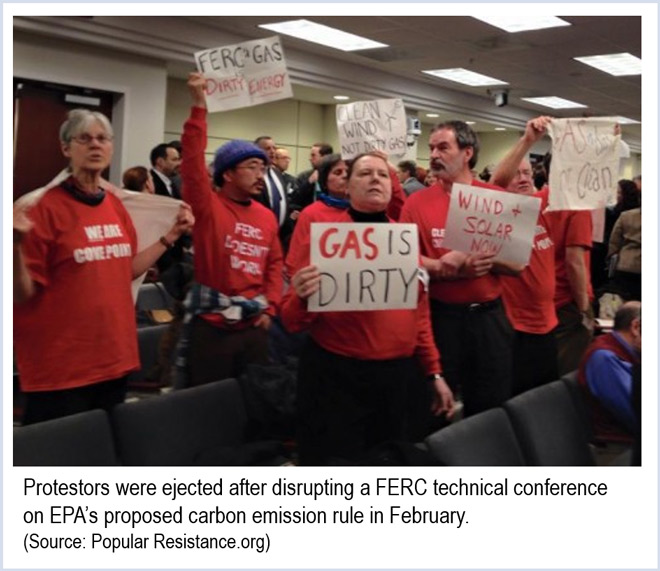By Michael Brooks

Borrowing language from the Federal Communications Commission, FERC issued an order modifying the Code of Federal Regulations “to clarify that the term ‘observe’ does not include disruptive behavior.”
Over the past year, FERC has been the target of environmental activists over its approval of natural gas pipelines and export terminals. At the commission’s January open meeting, protesters continually interrupted Chairman Cheryl LaFleur as she tried to begin proceedings, leading her to adjourn the meeting while security cleared the floor. (See Protesters Interrupt FERC Open Meeting.) Protesters were also escorted out after disrupting a FERC technical conference on proposed carbon emission rules in February.
While LaFleur has previously allowed protesters to read statements before she begins open meetings, the new order makes it clear that this will no longer be tolerated. According to the order, “communications made or presented by unscheduled presenters will not be considered by the commission.”
One protester, Ted Glick, said FERC should have public comment periods at open meetings.
FERC is in “drastic need for some doses of reality to the impact of their decisions,” said Glick, national campaign coordinator at the Chesapeake Climate Action Network. “We think the commissioners really need to hear from the public.” He said he did not think the order expressly prohibited unscheduled speakers.
Beyond Extreme Energy, the organization that coordinated the January meeting interruptions, said it is hoping to attract more than 500 demonstrators to protests at FERC in May.
FERC also amended its rules concerning recording open meetings to allow photography, which was previously prohibited. FERC said it recognizes that its “existing regulations concerning recording open meetings are unduly complex and out of date.” It said it was adopting language used by the Consumer Product Safety Commission, which allows members of the public to record meetings as long as they remain seated.



